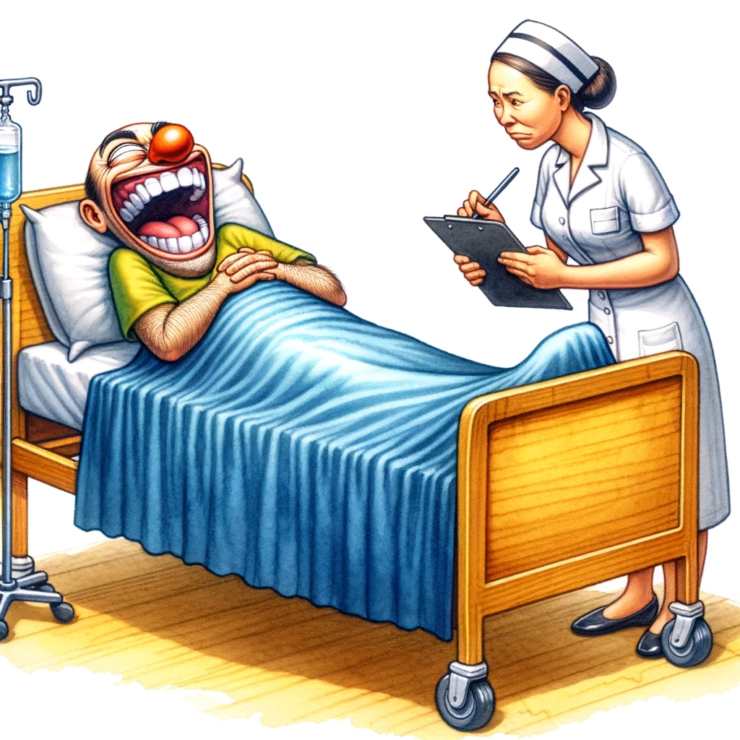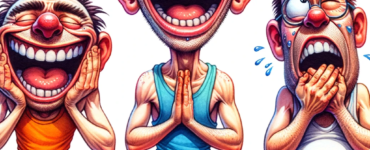Laughter is often regarded as a universally positive experience, providing social and health benefits. However, it’s not always beneficial and can sometimes harm your health. The following article explores several specific ways in which laughter might negatively impact health.
1. Exacerbation of Certain Medical Conditions
People with certain respiratory conditions, like asthma or chronic obstructive pulmonary disease (COPD), may find intense laughter triggers symptoms like wheezing, coughing, or shortness of breath. This is because laughter can cause spasms in the respiratory tract, exacerbating these conditions.
A New York University team reported that over half of people with asthma can have asthma attacks just from laughing.((https://www.medpagetoday.com/pulmonology/asthma/1106)) Even a small laugh, not just a big one, can cause these attacks, leading to coughing and a tight chest.((https://en.wikipedia.org/wiki/Chrysippus))
2. Physical Injury
Intense laughter can lead to physical injury. This includes muscle tears, hernias, or even rib fractures, particularly in the elderly or those with osteoporosis.((https://www.oxfordhealth.nhs.uk/wp-content/uploads/2014/08/OP-144.15-Rib-injury-advice.pdf)) During laughter, the sudden, forceful contractions of the stomach muscles can cause such injuries.
3. Headaches
For individuals prone to headaches or who suffer from migraines, laughter can sometimes trigger these conditions.((https://www.cureus.com/articles/82903-laugh-headache-not-a-joke-a-case-report#!/)) The exact mechanism isn’t fully understood, but it may relate to the rapid changes in blood flow and brain oxygenation during heavy laughter.
4. Mental Health Implications
Inappropriate laughter can be a symptom of neurological or psychological conditions, such as Pseudobulbar affect (PBA).((https://www.barrowneuro.org/condition/pseudobulbar-affect/)) This disorder causes uncontrollable laughter or crying, often at inappropriate times, leading to social embarrassment and psychological distress.
5. Worsening of Gastroesophageal Reflux Disease (GERD)
Laughter increases intra-abdominal pressure, which can exacerbate GERD symptoms.((https://med.virginia.edu/pediatrics/clinical-and-patient-services/patient-tutorials/about-gastroesophageal-ge-reflux/causes-of-ge-reflux/)) The pressure can force stomach contents back into the esophagus, causing discomfort and potential harm to the esophageal lining.
Laughter’s Hidden Risks
While laughter is generally beneficial and a sign of happiness and well-being, it’s important to recognize that it can also adversely affect health in specific circumstances. Understanding these potential harms allows individuals to manage their health better and seek appropriate medical advice when necessary.




































Add comment